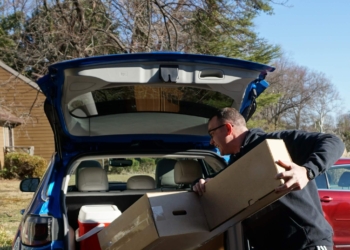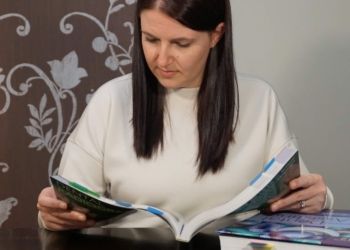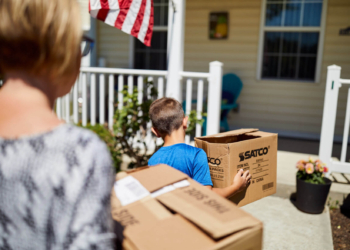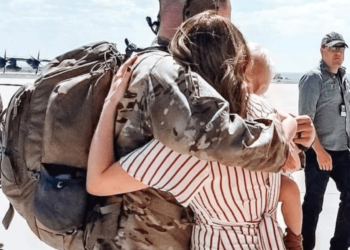One week after arriving at our first official duty station early this year, I ventured out of our empty new house to attend a social dinner with a group of women I’d never met. I felt vulnerable immediately throwing myself out into the world – not only a newcomer to the area, but also as a new military spouse.
What will we talk about? Is everyone else already best friends? Will they accept me? Will I be the only person to arrive alone? Will I feel out of place?
Despite my looming anxiety, I made it to the restaurant. It’s undoubtably intimidating to walk into a room full of individuals that you do not know, but military life is full of situations that require you to leave your comfort zone. I walked through the open door by myself and scanned the room for the table to which I could potentially belong. I eventually made eye contact with a friendly soul who recognized my nervous expression. She immediately waved me over to their section and rearranged the chairs to make room for me. After a few shy smiles and introductions, the conversation just began to flow naturally. Suddenly, the worry melted away when I realized that everyone at the table is simply trying to find meaningful connections and survive the stressors of constantly uprooting themselves every few years.
Fear
One of the biggest issues holding people back from truly and fully engaging in their communities is fear. I was initially apprehensive to attend because I had heard some negative feedback surrounding “spouse groups.” While there are cliques that fit the dreaded stereotype, far more of the people I’ve met encourage and support one another. I decided to join the dinner because isolation is far worse than meeting people you decide may not be your cup of tea. Loneliness is a feeling far too prevalent among military spouses – especially if you live far from your family or currently live OCONUS, as we are now.
Research on military spouses shows they are integral to the health of their families, but have demonstrated elevated levels of stress, depression, and anxiety. Socialization with other spouses can help ease the uncertainty and the corrosive impact of habitually relocating, providing an invaluable network of support, information, resources and friends.
Starting over in a new place every few years is unquestionably hard. Fortunately it can also offer opportunities to cultivate essential relationships that can last for years – and future duty stations – to come.
Struggling with making friends at a new duty station? Try these tips.
As it turns out, the women I met at dinner were gracious and welcoming. They hold genuine interest in supporting their peers, encouraging new friendships and building an inclusive community. I met some lovely women who accepted me into their lives without hesitation and have become an empathetic network of friends who also understand the challenges of being married to someone in the military.
Networking with other spouses propelled me into keeping busy with different events and volunteer work, opened employment prospects, established a group of people to hang out with and trust to watch my daughter and most importantly helped to avoid that dreaded feeling of isolation.
Now that we are starting to open up again and get together more, I offer you the following advice:
If you are sitting on the fence about attending an event, inviting that neighbor you met over for coffee, scheduling that play date with the other mama you met at the park, or joining a spouse group, I encourage you to jump off the fence and give it a try – you could potentially find some great new friends.
Read comments






































